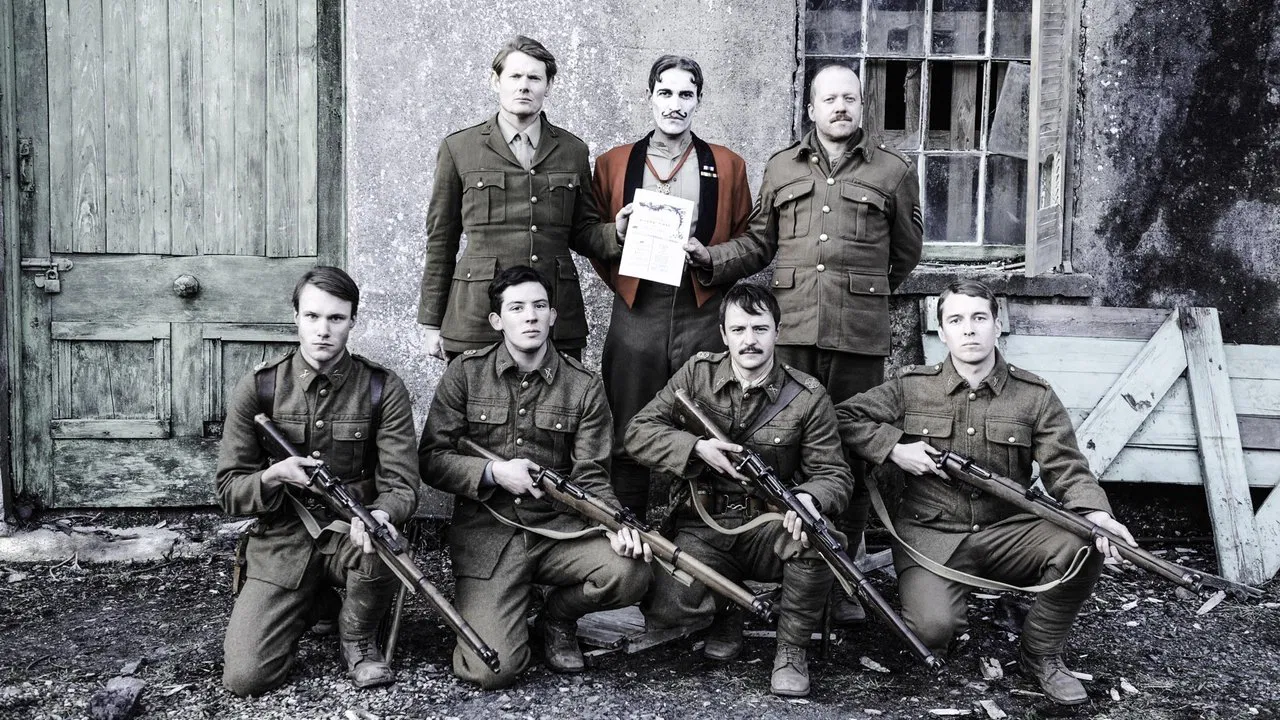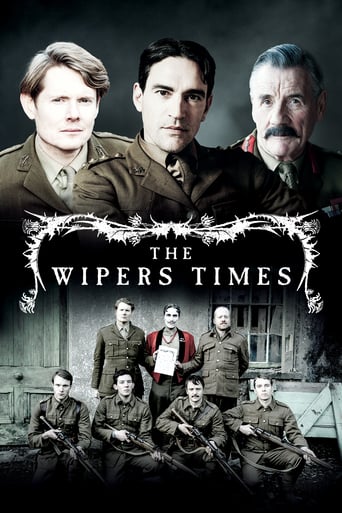Phonearl
Good start, but then it gets ruined
ChicRawIdol
A brilliant film that helped define a genre
KnotStronger
This is a must-see and one of the best documentaries - and films - of this year.
Quiet Muffin
This movie tries so hard to be funny, yet it falls flat every time. Just another example of recycled ideas repackaged with women in an attempt to appeal to a certain audience.
Myriam Nys
The subject matter itself is deeply interesting : it's a riveting tragicomic story of wit, bravery and resilience under the very worst of circumstances. I'm not sure, however, that the movie rises completely to the challenge. It lacks something - some spark of life, fire, madness.Still, there are many things to like, such as fine jokes and puns. The hard-bitten war correspondent writing from the inside of a bottle - pardon, battle - is an accurate piece of satire. It is a sad testimony to our modern times, that this kind of "reporting" has turned into an epidemic : thanks to advances in technology, every dishonest couch potato between the ages of 8 and 88 can (and will) write/twitter/blog/whatever about events taking place in a remote village in Sudan, with an air of great authenticity and authority.There is also a well-considered sepia palette, which permits a seamless blending with actual historic images. The sight of thousands upon thousands of men navigating the ruins of once delightful cities or moldering away in fetid mud is enough to wring tears from a stone.The movie shows the power, but also the limits of satire. The "Wipers" gazette tries to puncture the pride, indifference and incompetence of high-ranking officials and officers. But does it succeed in effecting real change ? One gets the impression that the brass simply continues on its merry way : no general changes his habits, is kicked out of the army or shoots himself. Worse : the more clever officers graciously allow the gazette to exist, realizing that the men need to vent their anger now and then. Thus the satire is co-opted by the very system it tries to correct and chastise.It's an age-old mechanism, known even to the old Romans : every now and then there was a festival where women could lord it over men and slaves could lord it over masters. There was freedom in the air and dancing in the streets. The next day it was back to business - and it were the slaves, not the masters, who had to clean up the vomit. Or think of the Catholic Church, which, in medieval times, allowed set occasions of misrule, complete with anti-bishops, lunatic processions and fake masses.The movie would have been better and braver if it had dared to examine this question outright, rather than suggest it obliquely.
Tom Dooley
Co written by Ian Hislop and Nick Newman this tells the story of Fred Roberts and his lieutenant and friend Jack Pearson. While based in Ypres, Belgium they discover a near working printing press. Their Sergeant used to work in newspapers and with his help they set up a satirical magazine and name it 'The Wipers Times' – in honour of the way 'Tommie's pronounce Ypres. They go for the ludicrous – where ever possible - and often take a swipe at those in command, but the paper is a hit and soon they are getting noticed. This is set during the destruction and slaughter of World War I and that is included in the film, as well as mustard gas, food shortages and the filth of the trenches. The film recreates some of the sketches from the papers as black and white pieces using the same characters and this adds to the surreal nature of the paper and how it was a break from reality for those that read it.Starring Ben Chaplin as Roberts and Julian Rhind-Tutt as Pearson who are both perfect castings for their respective roles, this was produced by the BBC to mark the anniversary of 'The Great War', along with other memorable films and series. This I felt was one of the best and dealt with an aspect of war that is often missed out, at one time it is said that 'war is nothing more than wallowing in a dirty ditch'; well this proved that humour could take men out of that ditch if even for a short time. Absolutely recommended and a credit to all involved in its production.
ericnottelling
While I did like the history of this mans story, I found the movie to be a bit dry. I'm sure in the historical period, the jokes on this may have been funny, but there is a total loss in translation. The acts and sketches were not funny at all. Wish they would have made this more of a stitch. It would have been nice to realize your audience is not in 1918. Your living in a day with movies like the hang over. The historical sense of the movie is nice, and I guess going for the idea of keeping it historical has some relevance but they movie was not filmed in such a manor. It was filmed in a way that they were hoping for a laugh. Which frankly didn't happen.
recrea33
written by the co-editor of Private Eye, Ian Hislop and Nick Newman and it shows. their love of the characters biting satirical humour in the face of the mud bath trenches of Flanders is plain to see and it works wonderfully. some critics have said that the device of punctuating the drama with faithful sketches taken from articles from the wipers times, got in the way of the story. but surely that is the point, humour in the face of a horrible drama. Chaplin as the sinister ringmaster/MC, complete with ghostly, flaking, pancake make up is brilliant, as is his co-star Rhind-Tutt. and there is a nice little cameo from Michael Palin as a sympathetic general. the 'Kermode six laugh test' was surpassed early on. oh, and i choked up a couple of times...all in an excellent comedy/drama about the futility of war. wholly recommended.

